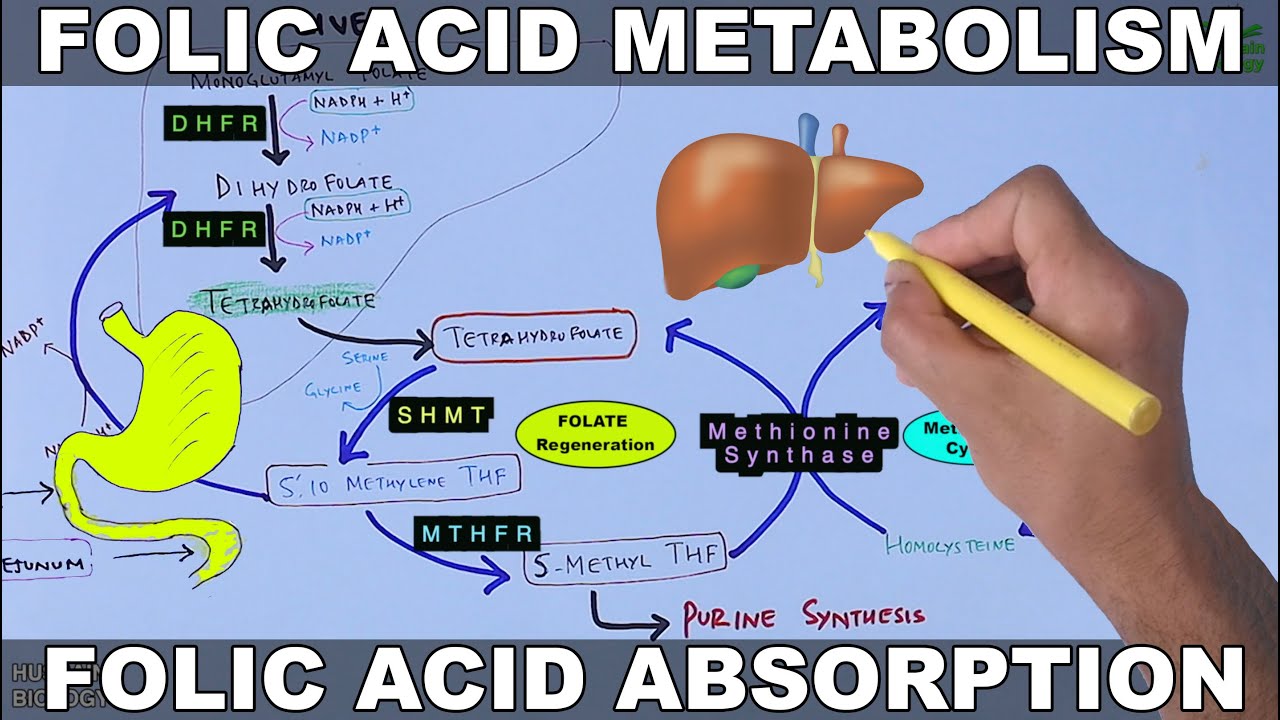Vitamin B6 (Pyridoxine) - Diet and Nutrition Series
Summary
TLDRThis video delves into the importance of vitamin B6 (pyridoxine), exploring its vital role in neurotransmitter synthesis, amino acid metabolism, and enzyme function. The speaker explains how deficiencies can lead to various neurological and hematological issues, including peripheral neuropathy, sideroblastic anemia, and homocystinemia, which can result in severe health complications like strokes and intellectual disabilities. Causes of vitamin B6 deficiency are outlined, including drug interactions, alcohol abuse, and malnutrition. The video provides guidance on diagnosing and treating the deficiency with vitamin B6 supplementation, emphasizing the importance of understanding its biochemical significance for effective healthcare.
Takeaways
- 😀 Vitamin B6 is essential for transaminations, decarboxylations, and phosphorylation processes in the body.
- 😀 Deficiency in Vitamin B6 can lead to homocysteine buildup, resulting in homocysteinemia and homocystinuria, which can cause severe health issues like myocardial infarction and strokes.
- 😀 Homocysteine is a byproduct of methionine metabolism and plays a key role in neurotransmitter synthesis, which is disrupted in Vitamin B6 deficiency.
- 😀 Vitamin B6 is critical for the synthesis of neurotransmitters such as GABA and norepinephrine, with its deficiency leading to peripheral neuropathy and irritability.
- 😀 Common causes of Vitamin B6 deficiency include drug use (e.g., contraceptive pills, hydralazine), alcoholism, malnutrition, and impaired liver function.
- 😀 Symptoms of Vitamin B6 deficiency include peripheral neuropathy, sideroblastic anemia, homocysteinemia, and neurological issues.
- 😀 Vitamin B6 deficiency can result in the malfunction of enzymes like cystathionine synthase, which contributes to homocysteine accumulation.
- 😀 Diagnosis of Vitamin B6 deficiency involves checking for low levels of Vitamin B6 in the blood or urine, as well as reduced activity of specific enzymes.
- 😀 Treatment of Vitamin B6 deficiency involves supplementation of Vitamin B6, which helps to correct symptoms and normalize biochemical processes.
- 😀 Vitamin B6 plays an important role in converting homocysteine to cysteine, and its deficiency disrupts this pathway, leading to negative health consequences.
Q & A
What is the role of Vitamin B6 in neurotransmitter synthesis?
-Vitamin B6 is crucial for synthesizing neurotransmitters such as GABA, serotonin, and norepinephrine. These neurotransmitters regulate mood, sleep, and various other physiological functions.
What condition results from Vitamin B6 deficiency and what are its effects?
-Vitamin B6 deficiency can lead to peripheral neuropathy, irritability, and cognitive disturbances due to the imbalance of neurotransmitters. It can also cause sideroblastic anemia, homocysteinemia, and increase the risk of cardiovascular events like myocardial infarction and stroke.
What is homocystinemia, and how is it related to Vitamin B6 deficiency?
-Homocystinemia is the accumulation of homocysteine in the blood, which occurs when Vitamin B6 is deficient. Vitamin B6 is required for the conversion of homocysteine to cysteine. Without it, homocysteine accumulates, leading to cardiovascular issues and intellectual disabilities.
What are the primary causes of Vitamin B6 deficiency?
-The primary causes of Vitamin B6 deficiency include the use of certain medications (like contraceptives, hydralazine, levodopa), alcoholism (which affects the liver's ability to convert Vitamin B6 precursors), malnutrition, and some rare diseases affecting enzyme function.
How can Vitamin B6 deficiency affect the hematologic system?
-Vitamin B6 deficiency can lead to sideroblastic anemia, a condition where the bone marrow produces abnormal red blood cells. This can result in fatigue and other symptoms related to poor oxygen transport.
What is the relationship between Vitamin B6 and Vitamin B3 (niacin)?
-Vitamin B6 is involved in the conversion of tryptophan into niacin (Vitamin B3). Deficiency in Vitamin B6 can lead to niacin deficiency, which in turn can cause conditions like pellagra.
What is the diagnostic approach for Vitamin B6 deficiency?
-Diagnosis of Vitamin B6 deficiency involves checking for decreased levels of Vitamin B6 in blood and urine, reduced activity of enzymes like erythrocyte aminotransferase, and increased uric acid levels in the urine.
What are the treatment options for someone with Vitamin B6 deficiency?
-Treatment for Vitamin B6 deficiency typically involves supplementing the patient with Vitamin B6 to restore normal levels and alleviate symptoms.
What are the potential neurological effects of Vitamin B6 deficiency?
-Neurological effects of Vitamin B6 deficiency include peripheral neuropathy, irritability, cognitive disturbances, and potentially more severe issues due to the lack of inhibitory neurotransmitters like GABA.
Why is Vitamin B6 important for the cardiovascular system?
-Vitamin B6 is important for maintaining healthy homocysteine levels. When deficient, elevated homocysteine can lead to vascular damage, increasing the risk of heart disease, strokes, and blood clots.
Outlines

このセクションは有料ユーザー限定です。 アクセスするには、アップグレードをお願いします。
今すぐアップグレードMindmap

このセクションは有料ユーザー限定です。 アクセスするには、アップグレードをお願いします。
今すぐアップグレードKeywords

このセクションは有料ユーザー限定です。 アクセスするには、アップグレードをお願いします。
今すぐアップグレードHighlights

このセクションは有料ユーザー限定です。 アクセスするには、アップグレードをお願いします。
今すぐアップグレードTranscripts

このセクションは有料ユーザー限定です。 アクセスするには、アップグレードをお願いします。
今すぐアップグレード関連動画をさらに表示

Vitamin B6 (Pyridoxine) Deficiency | Dietary Sources, Causes, Signs & Symptoms, Diagnosis, Treatment

CATABOLISMO DE AMINOÁCIDOS

Folic Acid Metabolism | Folate Cycle

Introduction to nitrogen metabolism

Vitamin B12 & Why We Need It | Biochemistry, Absorption, & Important Enzymes

Vitamin B6 Explained – Its Benefits, Best Food Sources & How It Supports Your Health
5.0 / 5 (0 votes)
